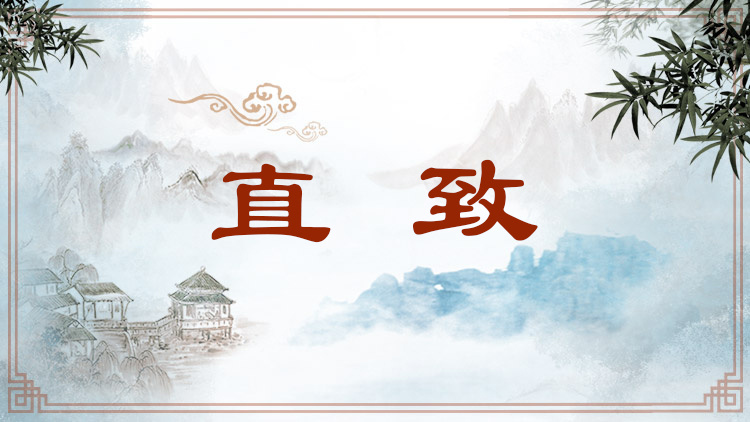直致 Direct Expression

诗歌的描写或语言直接而不婉曲。致:到,抵达。与南朝钟嵘提出的“直寻”含义接近。钟嵘不满有的诗歌搬用典故,认为诗歌是感于外物、吟咏情性之作,写景抒情应有真切的审美感受,语言表达应当不假雕饰、生动鲜明。唐代诗论家殷璠继承了钟嵘的观点,提出了“直致”,进一步说明诗歌写景抒情应当直接使用质朴率真、明朗自然的语言,传达自己的眼中之美、心中之情。
This term means that the description and language used in poetry should be direct and straight forward rather than implied. Here, zhi (致) means reaching to something. The origin of this term may be traced to the concept of direct search first proposed by Zhong Rong of the Southern Dynasties. He disapproved of the excessive use of allegories in some poems, maintaining that a poem could only be written when a poet was inspired by external objects. Whether describing scenery or expressing his thoughts, the poet should present his sentiments with vivid writing while avoiding the use of rhetoric. Yin Fan, a Tang Dynasty critic of poetry who followed Zhong Rong's view, put forward the term "direct expression," believing that one should use simple, clear and vivid language to describe both scenery and his sentiment.
引例 Citations:
◎观古今胜语,多非补假,皆由直寻。(钟嵘《诗品》卷中)
综观古今名篇佳句,大都不是借用前人诗句或使用典故,而是直接从自身体验中寻求而得。
An examination of well-known poetic works of both the past and the present shows that most of such poems hardly quote lines of classic poetry or literary allusions. Rather, they are directly inspired by the personal experiences of poets. (Zhong Rong: The Critique of Poetry)
◎至如曹刘,诗多直致,语少切对。(殷璠《河岳英灵集序》)
至于说到曹操、刘桢,他们的诗作直接而不婉曲,很少注意形式上的平仄工整。
The poems of Cao Cao and Liu Zhen are direct rather than implied in style, and these two poets cared little about tonal harmony. (Yin Fan: Preface to A Collection of Poems by Distinguished Poets)
推荐:教育部 国家语委
供稿:北京外国语大学 外语教学与研究出版社
责任编辑:刘怿莎





